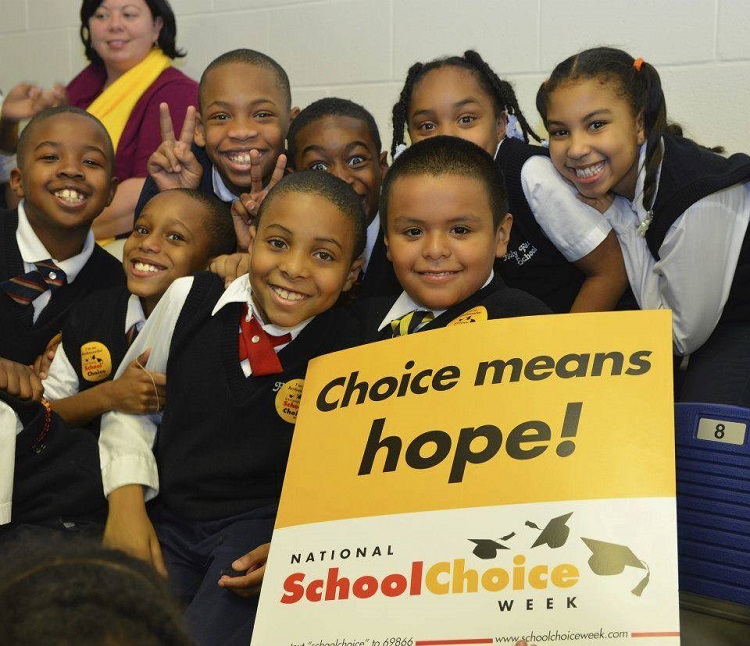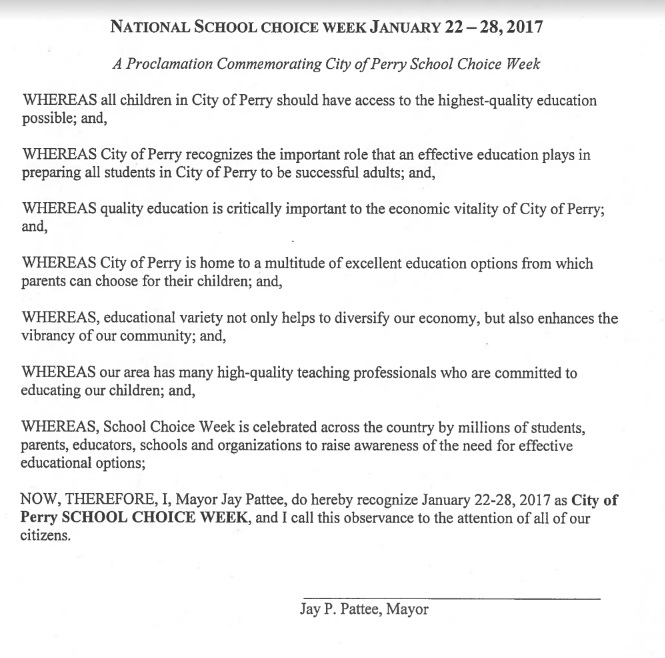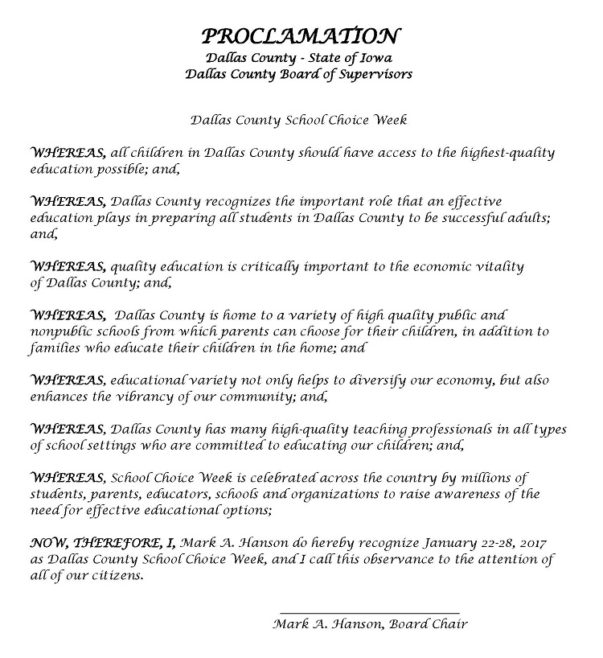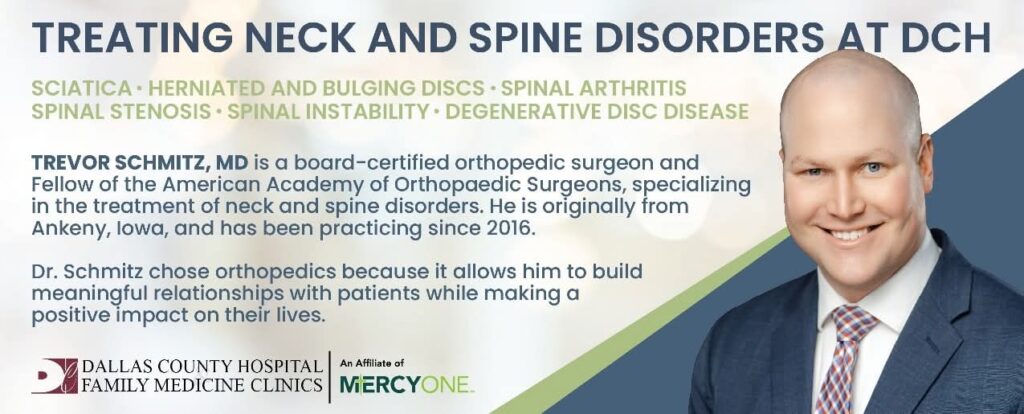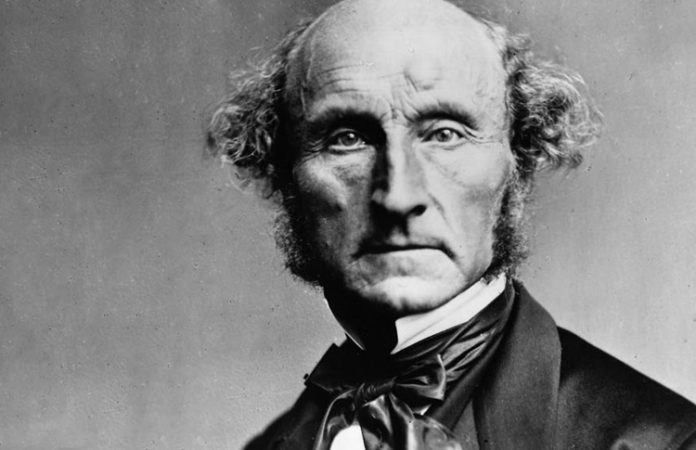
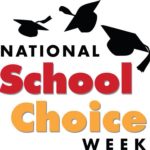 National School Choice Week begins Sunday, and the city of Perry, Dallas County and the state of Iowa all passed resolutions supporting the annual event.
National School Choice Week begins Sunday, and the city of Perry, Dallas County and the state of Iowa all passed resolutions supporting the annual event.
According to the language of the resolution, National School Choice Week is “celebrated across the country by millions of students, parents, educators, schools and organizations to raise awareness of the need for effective educational options.”
The Dallas County Board of Supervisors approved the resolution Dec. 20, 2016, and the city of Perry approved it Jan. 16. Iowa Gov. Terry Branstad and Lt. Gov. Kim Reynolds will attend a National School Choice Week celebration at the Iowa State Historical Museum Wednesday, Jan. 25.
Among the educational options celebrated during the week are online schools, private schools, public charter schools, public magnet schools, home schooling and “traditional public schools,” according to Noelle DeLaney, outreach manager of National School Choice Week.
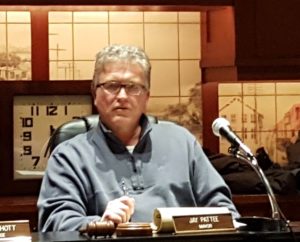
Betsy DeVos, nominated in November as Secretary of Education by the incoming Trump administration, is a strong proponent of school choice. She has served as chairwoman of the board of Alliance for School Choice and heads the All Children Matter PAC.
“Parents no longer believe that a one-size-fits-all model of learning meets the needs of every child,” DeVos said during her recent Senate confirmation hearing. “And they know other options exist, whether magnet, virtual, charter, home, faith-based or any other combination.”
A Michigan billionaire, DeVos has lobbied for decades to expand charter schools and taxpayer-funded vouchers for private and religious schools. Critics note DeVos has no professional experience in public schools and never attended public schools or sent her own children to public schools. She has not held public office.
In her testimony before the Senate, DeVos also declined to say whether she believes that all schools receiving taxpayer funding — public, public charter or private — should be held accountable to the same performance standards or whether they should be required to report suspensions and expulsions, and incidents of bullying and harassment, to the federal government.
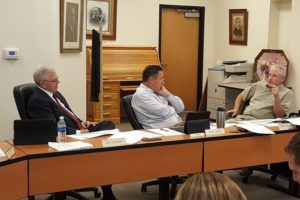
Steve Nelson, a vocal critic of National School Choice Week who heads a private school in New York City, said the event is “funded by the most conservative, anti-union, anti-progressive and anti-teacher forces in America,” and it seeks to “accelerate the demise of public education in America.”
According to Nelson, “‘School choice’ means further segregating schools by race and class. ‘School choice’ diverts critical resources from underfunded public schools to for-profit education management organizations,” and “‘school choice’ means tax dollars flowing to fundamentalist religious schools through contrived mechanisms, clearly violating the spirit, if not the letter, of the First Amendment.”
Kristin Rawls, an independent researcher, said the National School Choice Week movement is largely funded by the American Legislative Exchange Council (ALEC), a pro-big-business lobbying group that also backs stand-your-ground gun laws and voter identification laws.
Other funders of National School Choice Week include the Koch brothers, the Goldwater Institute, Tea Party Caucus, Heritage Foundation, Alliance for School Choice, Friedman Foundation, Heartland Institute, Reason Institute and many other conservative groups, according to Rawls.
At the same time, some liberals also support school choice. In his famous book, “On Liberty,” the father of British liberalism John Stuart Mill said, “All that has been said of the importance of individuality of character, and diversity in opinions and modes of conduct, involves, as of the same unspeakable importance, diversity of education.”
Mill believed that an “education established and controlled by the state should only exist, if it exist at all, as one among many competing experiments, carried on for the purpose of example and stimulus, to keep the others up to a certain standard of excellence. Unless, indeed, when society in general is in so backward a state that it could not or would not provide for itself any proper institutions of education, unless the government undertook the task.”
Mill said the state’s testing of its citizens’ education should be “confined to facts and positive science exclusively” and not to matters of opinion, such as religious beliefs. “All attempts by the state to bias the conclusions of its citizens on disputed subjects are evil, but it may very properly offer to ascertain and certify that a person possesses the knowledge, requisite to make his conclusions, on any given subject, worth attending to.”
